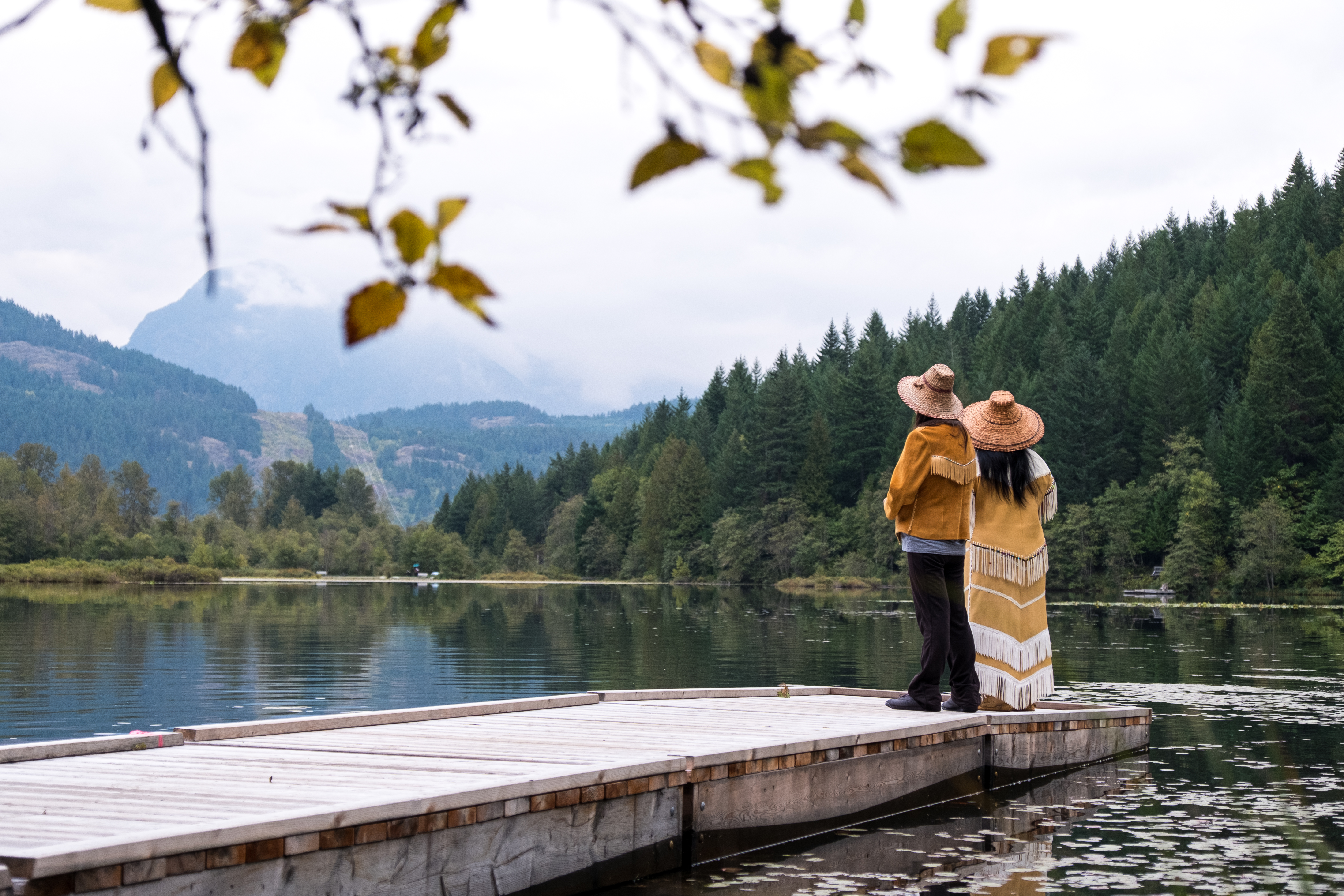How the Four Core Values of Indigenous Peoples Align with Lifelong Learning

West Coast Salish Peoples
June 7, 2023
The four core values commonly associated with Indigenous Peoples – respect, relationship, reciprocity, and responsibility – demonstrate a strong commitment to lifelong learning, and encourage ongoing engagement and exploration of Indigenous knowledge and experiences.
“Embracing these values requires continuous learning, self-reflection, and active participation within and beyond the community to strengthen relationships, ensure reciprocity, and fulfill responsibilities,” says Shane Young, MSW, PhD (ABD), Assistant Professor of Social Work and Academic Coordinator, Indigenous Knowledges and Experiences Certificate.
In this article, Shane offers his insight into how each of the four core values specifically relates to lifelong learning as well as the curriculum in the certificate program.
Respect
“In the context of lifelong learning, respect encourages individuals to approach new knowledge and experiences with curiosity and willingness to learn from diverse perspectives,” says Shane. “It involves valuing the wisdom of Elders, Knowledge Keepers, and community members and recognizing the importance of self-respect and self-reflection in personal growth and learning.”
The value of respect is integrated into the curriculum by centring Indigenous perspectives, explains Shane.
“The curriculum emphasizes respectful engagement with Indigenous communities, honouring their cultural practices, and valuing their knowledge systems,” he says, adding that it also promotes an understanding of colonization's historical and ongoing impacts while fostering respect for diverse Indigenous cultures, traditions, and worldviews.
Relationship
“Lifelong learning is enriched through connections and collaborations with others. Building and nurturing relationships with elders, mentors, peers, and community members is essential for Indigenous Peoples' learning journeys,” says Shane. “These relationships provide opportunities for knowledge exchange, storytelling, and mentorship, fostering a sense of belonging and deepening understanding.”
The value of relationships is reflected in the curriculum by fostering connections between learners, instructors, and Indigenous communities. This is achieved through community-based learning experiences (capstone course: CVSW 932 Indigenous Knowledges in Practice), guest lectures by Knowledge Keepers and Indigenous community members, and partnerships with Indigenous organizations. The curriculum emphasizes building relationships based on mutual respect, active listening, and collaboration, recognizing the importance of reciprocal learning and the wisdom of Indigenous Peoples.
Reciprocity
“In the context of lifelong learning, reciprocity encourages individuals to share knowledge, skills, and experiences with others while being open to receiving new insights and perspectives,” says Shane. “It involves recognizing that learning is a collaborative process that benefits both the learner and the community. By engaging in reciprocal learning relationships, individuals contribute to the growth and well-being of their communities while continuing their own personal and intellectual development.”
The value of reciprocity is integrated into the curriculum by promoting a two-way exchange of knowledge and experiences. The curriculum encourages learners to actively contribute to the communities they engage with while recognizing the value of local Indigenous knowledges.
Responsibility
“Lifelong learning is viewed as a collective responsibility encompassing preserving cultural traditions, revitalizing Indigenous languages, and passing on ancestral knowledge to future generations,” says Shane. “Indigenous Peoples take on the responsibility to be active participants in their learning journeys and contribute to their communities' well-being and advancement through the knowledge they acquire.”
The value of responsibility is reflected in the curriculum by emphasizing the ethical and moral dimensions of learning about Indigenous Knowledges and Experiences. The curriculum encourages learners to understand their responsibilities as learners, allies, co-conspirators, and advocates with Indigenous Peoples. It also explores the importance of ethical research practices, cultural sensitivity, and the role of education in supporting decolonization, Indigenous rights, and self-determination.
“By infusing the curriculum with these core values, the Certificate in Indigenous Knowledges and Experiences strives to create a learning environment that respects Indigenous cultures, builds meaningful relationships, fosters reciprocal learning, and promotes a sense of responsibility towards Indigenous Peoples and their knowledge systems,” says Shane.
